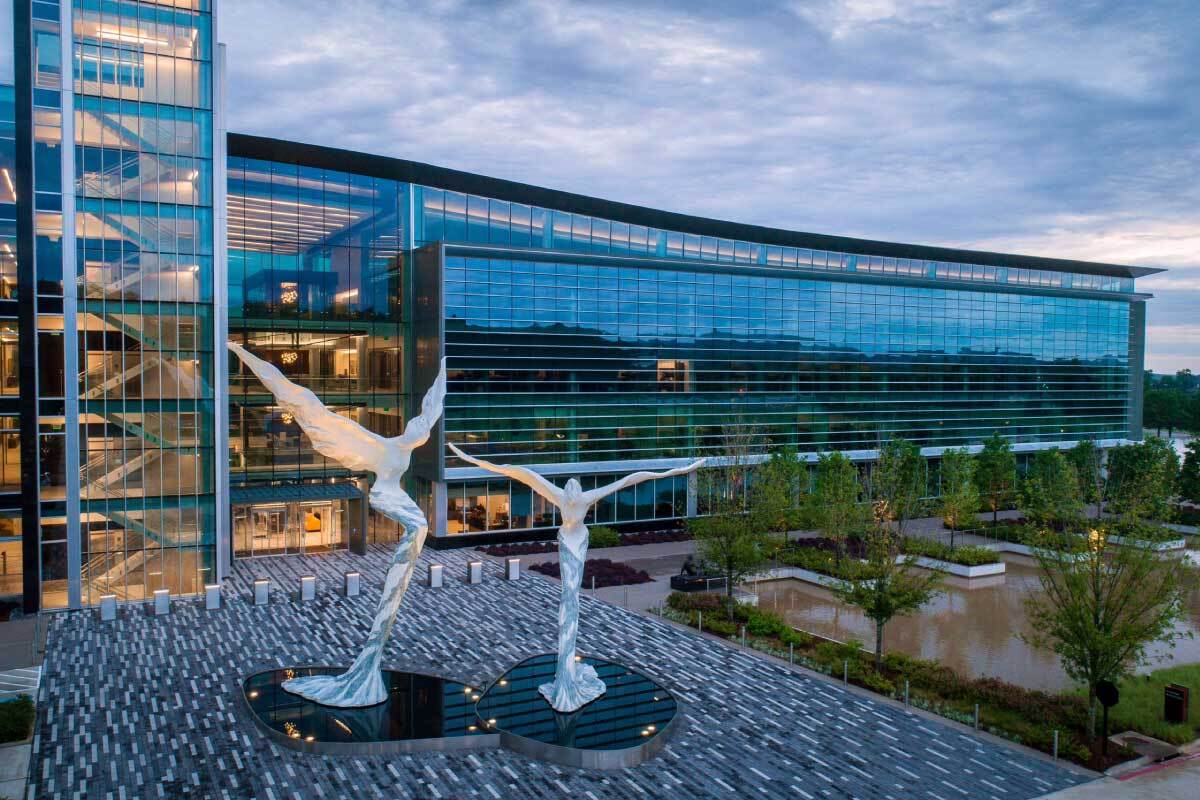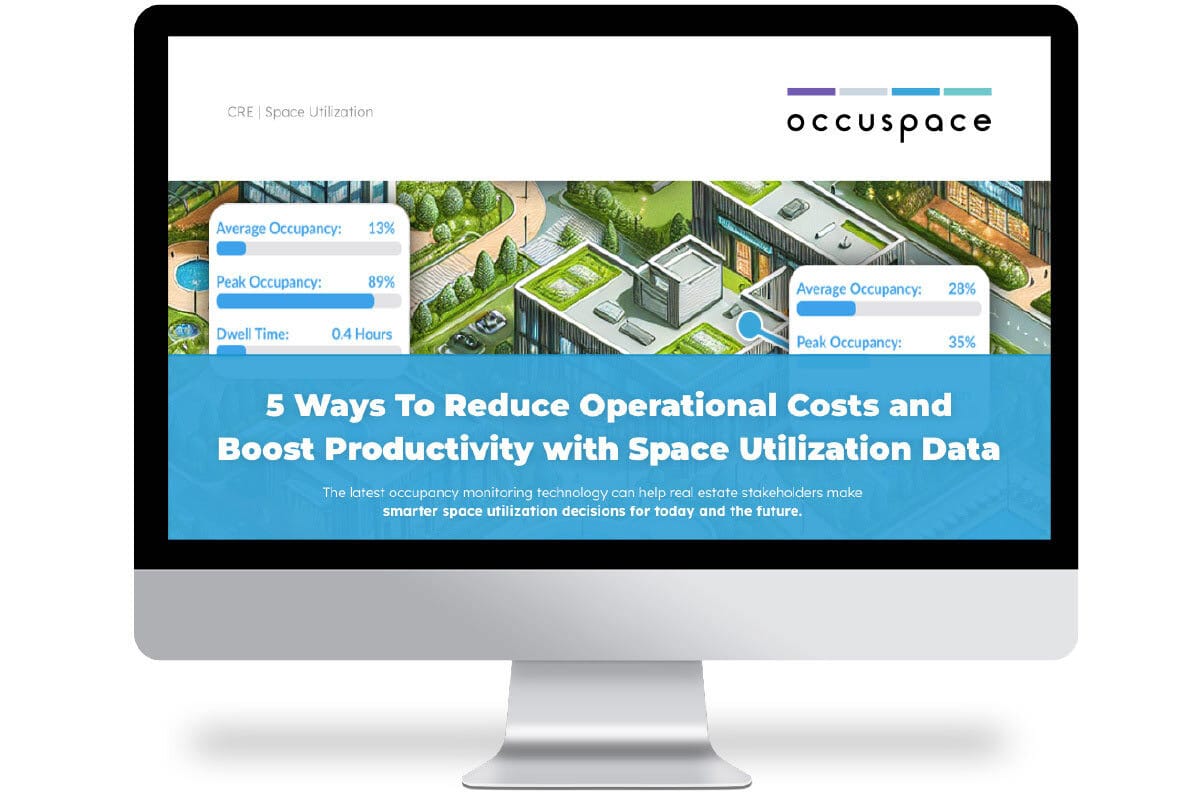Supported by Occuspace
Propmodo Daily
By Franco Faraudo · May 30, 2024
Greetings!
Bank OZK, with significant exposure to commercial real estate, is facing scrutiny as high interest rates persist. As we discuss in today's email, analysts have downgraded the bank due to concerns about its large loans, notably a $1.5 billion project in San Diego with low leasing activity. The bank maintains substantial reserves to cover potential losses, and its executives remain optimistic about their financial position despite these challenges.
The COVID-19 pandemic has driven rapid technological advancements in the commercial cleaning industry, traditionally reliant on manual labor. Companies like C&W Services are now using AI and IoT devices to optimize cleaning schedules and enhance efficiency. In our new article, we explore how these innovations are transforming janitorial services and what the future holds for this evolving industry.
Last chance! Join us today, May 30, 2024, at 1:00 PM ET for a Propmodo Live webinar discussion on adapting office leasing strategies. Industry experts from CoStar, JLL, Cohesion, and Propmodo will share insights on hybrid work, high interest rates, shrinking workspaces, innovative office design, and effective lease negotiations. Don't miss out—register now!
Now, let's dig in!
Is the Bank OZK Downgrade Warranted?
Many eyes have been on Bank OZK since the Fed raised interest rates. This relatively obscure bank has one of the largest exposures to commercial real estate, becoming a primary lender for large developments nationwide. Despite the high interest rates, the Arkansas-based bank continues to fund new commercial real estate loans. In March 2023, the bank had $22.06 billion in commercial lending exposure; by the same time this year, that number had grown to $28.03 billion.
Now, analysts are changing their outlook on the bank as more commercial real estate loans fall into special servicing. This week, Citi Bank analyst Benjamin Gerlinger downgraded Bank OZK from a buy to a sell due to “newfound but substantial concerns” regarding OZK's largest individual loan ($915 million) for a multi-use project in Atlanta ("Echo Street West"; $135 million loan) and life sciences construction lending in general.
Gerlinger is one of several analysts voicing concerns about the bank’s loan portfolio, but his pessimism had the most immediate impact on the company’s stock price. The stock has dropped nearly 20%, erasing about $800 million in equity. So, what are Gerlinger’s concerns, and is his theory about the company well-founded?
While Bank OZK has significant exposure to commercial development, it also has substantial reserves for potential loan losses. “Provision for credit losses was $42.9 million for the first quarter of 2024 compared to $35.8 million for the first quarter of 2023. The bank’s total allowance for credit losses (ACL) was $536.9 million on March 31, 2024, compared to $393.8 million on March 31, 2023,” a company spokesperson said during the last earnings call. These reserves could deplete quickly if several large loans encounter problems simultaneously.
One of the most concerning aspects of Bank OZK’s balance sheet, according to Gerlinger, is its large loans for a $1.5 billion project in Downtown San Diego. "We believe 0% of the 1.7 million square feet is leased—indicative of a difficult life sciences construction lending market," he said. Indeed, San Diego’s Research and Development District (RaDD) has seen little leasing activity.
A recent C&W report shows San Diego has a lot of new inventory being completed and negative net absorption. However, the same report ranks San Diego highly for underlying fundamentals in the life science property market. Bank OZK loaned $475 million to the project in 2022 and another $265 million in 2023. If both loans were nonperforming, it would deplete all of Bank OZK’s cash allowances, leaving them vulnerable to losses from other struggling loans.
The timing of the loans might favor Bank OZK. There is still time for the project to lease up before the loans come due. Developer IQHQ has many other life science projects, including a $1 billion development near Fenway Park in Boston, and shows no signs of defaulting on their loans. While Bank OZK is exposed to the risk of large-scale defaults in life sciences, its cash reserves and the financial strength of its borrowers should reassure investors that no single project is likely to cause the bank to fail.
Analysts might have turned on Bank OZK, but the executives are not sounding alarm bells yet. In the last earnings call, CEO George Gleason explained, “Higher for longer at current rates is an excellent scenario for us. It gives us time to reset that floor and keeps repayments at a fairly muted level, both of which are very helpful from a net interest income perspective.”
PRESENTED BY OCCUSPACE
5 Ways To Reduce Operational Costs and Boost Productivity with Space Utilization Data
Discover how cutting-edge occupancy monitoring technology can revolutionize your space utilization strategy.
A new eBook, "5 Ways to Reduce Operational Costs and Boost Productivity with Space Utilization Data," provides actionable insights for commercial and corporate real estate professionals. Learn how real-time data can help you optimize office space, save on operational costs, and enhance employee satisfaction. From avoiding unnecessary expansions to reducing food waste and streamlining custodial services, this ebook is your guide to smarter, data-driven space management.
“Now that we have live data of our spaces, we can evaluate building utilization based on occupancy over time.”
Download this eBook now and improve strategic decision-making!
The Future of Commercial Cleaning
Insider Insights
🛒 Climate control: Climate tech company BrainBox AI is continuing to expand with its purchase of the automation division of Turntide Technologies, adding more than 1,900 new buildings onto its platform with the acquisition.
⌚️ Wearable power: A new leather-like, super-efficient solar panel is being added to wearables to help them need less external power, a technology that could eventually make its way into buildings.
Overheard
Propmodo Technology: Construction Management
Are You Enjoying This Newsletter?
Propmodo Daily is written and edited by Franco Faraudo with contributions from readers like you and the Propmodo team.
📧 Forward it to a friend and suggest they check it out.
🔗 Share a link to this post on social media.
🗣 Have ideas for future topics (or just want to say hello)? Share your feedback and tips at [email protected] or connect with us on X through @propmodo.
✅ Not subscribed yet? Sign up for this newsletter here.
📫 Please add our newsletter email, [email protected], to your contacts to make sure you don’t miss any updates.
Explore Propmodo
Read exclusive articles about a variety of topics, including Real Estate, Workplace, Buildings, and Development.
Browse our collection of interactive Propmodo Research e-books.
Sign up for upcoming Propmodo Live Webinars or watch past Propmodo Live videos on-demand.
Dive into Propmodo Technology articles, podcasts, and short videos about the future of commercial real estate.
Enjoy reading about trends and innovation in commercial real estate? Subscribe to Propmodo.com for unrestricted access to reliable, data-driven journalism and exclusive insights available only to subscribers.








